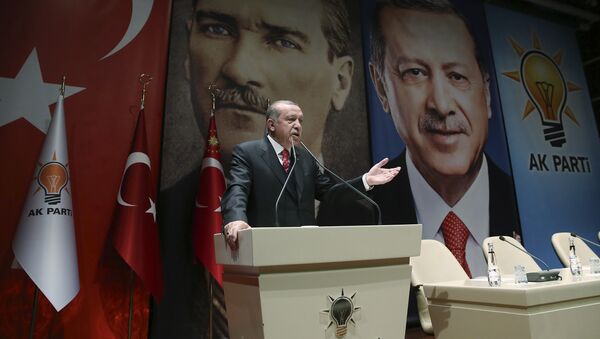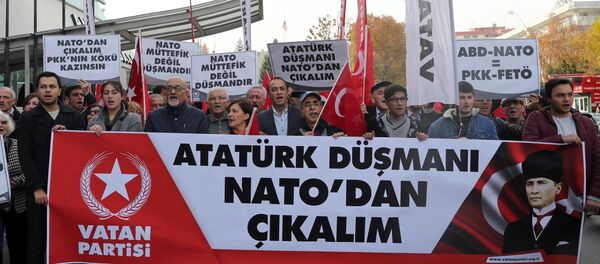The Norwegian daily Aftenposten has shed new light on the incident, revealing that the man responsible for the gaffe, who had previously been engaged in several NATO exercises as a guest specialist, was of Kurdish origin, a circumstance perfectly known to both the Norwegian Armed Forces and the Foreign Ministry.
The man was commissioned by the Joint Warfare Center (JWC) at Jåttå near Stavanger, which was the headquarters for the drill.
According to Morten Myksvoll, the editor of the website tyrkiskpolitikk.no, which focuses on Turkish politics, the man's origins diminish the probability of an innocent mistake to almost non-existent.
"If this information is correct, chances for an innocent mistake are rather small. If the man had a Kurdish background, the odds are that it was rather a conscious choice," Myksvoll said.
"This is important to establish. If the message was approved, then you can really call it a blunder. Then the consequences of a NATO partner being called an enemy simply were not reckoned with," Morten Myklevoll argued.
If the message was sent out on purpose, it is likely to expand the rift between Ankara and the rest of NATO. Myksvoll said he expected Erdogan to return to this topic in the future, while discussing Turkey's relations with Europe.
#Erdoğan: We have withdrawn our troops from #NATO drill in #Norway
— Yeni Şafak English (@yenisafakEN) 18 ноября 2017 г.
https://t.co/DsNKmY1fhg pic.twitter.com/WYHsKzoJvI
During the Trident Javelin NATO exercise held in Norway in November, which was described as the most important in the current year, Turkey's current leader and the "father of the country" Mustafa Kemal Atatürk were both presented as enemies. Several Norwegian sources argued that the mislabeling could be part of the drill, designed to simulate "fake news" that could possibly put the alliance under stress. However, the incident prompted the indignation and subsequent withdrawal of Turkish participants, and prompted a series of apologies from NATO officials, including Secretary General Jens Stoltenberg and Norwegian Defense Minister Frank Bakke-Jensen.
"Norway and NATO have been very keen to apologize for this, probably for two reasons. One is the eagerness prevent Turkey, so far a secular and Western-oriented state, from relinquishing all Western cooperation slipping into the Islamic sphere," Sverre Diesen told national broadcaster NRK. "For NATO it is also particularly important to avoid the perception that the alliance is cracking. The combination of the two factors caused NATO to go a long way in apologizing, almost longer than the whole episode called for," he added.
READ ALSO: Stoltenberg Favours Stronger European Defense Complementing NATO
The Trident Javelin Exercise was described as one of the most important in 20 years, and Norway's largest in 2017. Its aim was to test NATO's new Joint Warfare Center at Jåttå near Stavanger and the ability to carry out large-scale joint warfare, including tackling cyber threats, as well as chemical and biological threats. It was also seen as a warm-up to the Trident Juncture exercise, set to be held in autumn 2018, when 35,000 soldiers from 30 countries will come to Norway.
Exe Trident Javelin 2017 swings into action to test and improve #NATO commands in #Europe, read more https://t.co/4TotgMM60T pic.twitter.com/PQmvWN0JEy
— Claudio Bisogniero (@CBisogniero) 13 ноября 2017 г.




